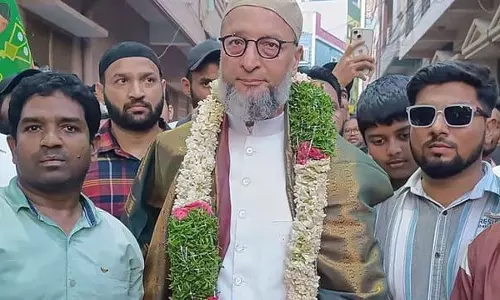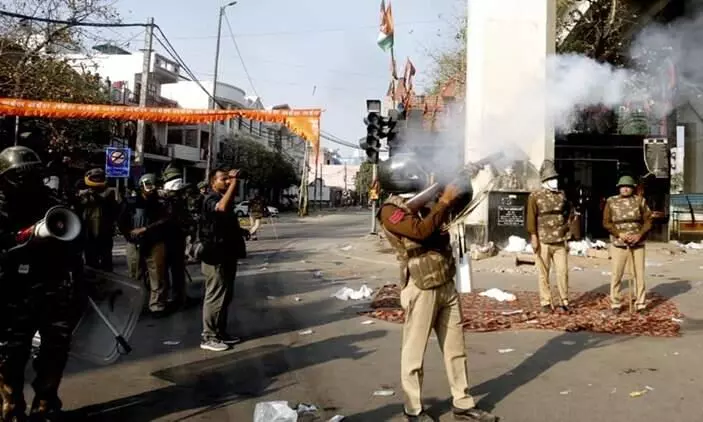
Delhi police remain scot-free despite fabricating evidence against Muslims in 2020 riots cases
text_fieldsNew Delhi: The Delhi court hearing the 2020 communal riots in North Delhi has witnessed several Muslim men accused in the riots being acquitted in the past three weeks, citing flaws in the Delhi Police investigations, which have also been criticized for relying on fabricated evidence against the accused.
The allegation against the Delhi police that it has been fabricating evidence, sparked concerns about the potential institutional targeting of Muslims based on false evidence.
Meanwhile, the lack of action against the police personnel involved in fabricating evidence against Muslims, who have been left without any consequences for offences under the IPC, has also become a subject of criticism against the Delhi Police.
The riots, which erupted between supporters and opponents of the Citizenship (Amendment) Act in North East Delhi in 2020, resulted in the tragic loss of 53 lives and left hundreds injured, with the majority of the victims being Muslims.
In one particularly scathing order reported on August 28, Additional Sessions Judge Pulastya Pramachala accused the Delhi Police of attempting to "befool" the court by presenting a non-existent video as evidence.
On August 24, Pramachala acquitted a Muslim man accused of involvement in the violence, asserting that the police had made "artificial statements" against him and had filed chargesheets in a "mechanical manner without proper investigation."
Earlier in August, on August 16, Pramachala discharged three Muslim men accused of rioting, expressing suspicions of evidence manipulation by the investigating officer. The court pointed out that the police's chargesheet had been prepared in a "predetermined, mechanical, and erroneous manner."
These rulings are part of a pattern of court orders in Delhi that have criticized the Delhi Police for planting false evidence and have led to the discharge, acquittal, or grant of bail to individuals accused of violence during the riots.
Notable cases include Metropolitan Magistrate Shirish Aggarwal's May 30 ruling, where he acquitted a Muslim man and raised doubts about the authenticity of a police witness's statement, suggesting it was fabricated to secure a conviction.
Last year, in September, Pramachala acquitted another Muslim man, emphasizing that his identification by the police was an "afterthought development." Additional Sessions Judge Vinod Yadav also noted in October 2021 that a Delhi Police witness had lied under oath in a case related to the riots.
These orders collectively raise questions about the credibility of witness statements, with some witnesses alleging that they were coerced into providing false testimony by the police. In several instances, the recorded witness statements were found to be identical, further raising doubts about their authenticity.
Despite these troubling revelations, the Delhi Police officers involved in presenting false evidence have not faced legal consequences under Chapter XI of the Indian Penal Code, which criminalizes false evidence and offences against public justice. Depending on the severity of the offence, punishments range from three years' imprisonment to life imprisonment or even the death penalty.
However, the complicated process prescribed by the Code of Criminal Procedure for prosecuting such offences has hindered accountability. Courts must conduct preliminary inquiries into whether a complaint for a false evidence offence is merited, leading to additional burdens on an already overloaded judicial system.
Furthermore, both the Supreme Court and the Law Commission of India have recommended that the government implement a policy to provide compensation to individuals falsely implicated in criminal cases.























